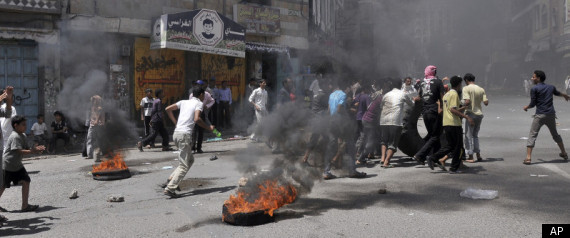SANAA, Yemen -- Street battles between Yemeni government forces and armed tribesmen killed dozens of people Wednesday in this country teetering on the brink of civil war, forcing residents to cower in basements or brave gunfire to fetch bread and water.
Nearly four months of mass protests calling for President Ali Abdullah Saleh's ouster have exacerbated already dire poverty, shuttering businesses and forcing up prices of essential goods. It's a trend that does not bode well for long-term stability in this gun-ridden corner of the Arabian Peninsula, home to an active al-Qaida branch and other armed Islamist groups.
Yemen's mainly peaceful protests gave way to fighting last week between Saleh's security forces and fighters loyal to the head of Yemen's most powerful tribal coalition, Sheik Sadeq al-Ahmar. That was the tipping point that pushed the anti-government uprising toward civil war.
At least 41 people were killed Wednesday as clashes spread to new quarters of the city.
Secretary of State Hillary Rodham Clinton said Saleh's refusal to step down was prolonging the crisis.
"We cannot expect this conflict to end unless President Saleh and his government move out of the way to permit the opposition and civil society to begin a transition to political and economic reform," she told reporters in Washington.
President Barack Obama's Homeland Security and Counterterrorism adviser John Brennan was to travel to Saudi Arabia and the United Arab Emirates this week for talks on Yemen.
Fighting in the capital raged from early morning though midday, sending the crackle of gunfire and the booms of artillery strikes across the city. The clashes spread Wednesday from the Hassaba neighborhood where tribesmen have seized more than a dozen government buildings, to new areas.
The clashes forced Talal Hazza to crowd into a neighbor's basement with 20 others, half of them children.

AP

AP



















